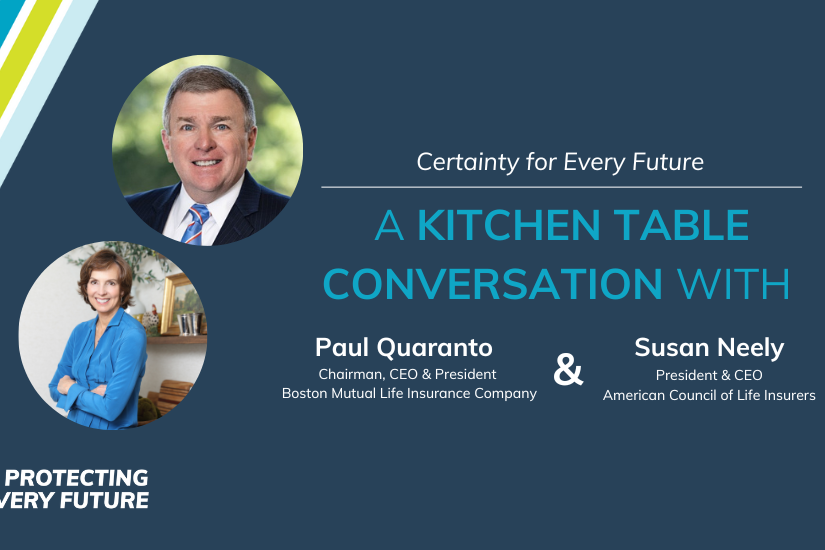The Time Is Right

Applications for life insurance coverage in the United States rose 4% in 2020, the highest growth rate since 2001.
How and why did this happen when so many other sectors were decimated by COVID-19?
The “why” is easy to understand. As the coronavirus death toll rose, more Americans sought to obtain this fundamental financial protection for their families.
The “how” is a little more complicated. But it reflects the ongoing modernization of life insurance that began before the pandemic and will continue to benefit consumers in the future.
For more than 150 years, the life insurance application process has involved in person contact between an applicant and a financial professional. In addition to filling out paperwork, applicants often underwent a medical exam that included blood and urine samples.
Financial professionals still work closely with applicants to provide tailored insurance coverage appropriate for their unique needs. However, the emergence of secure electronic communications has allowed insurers to handle parts of the underwriting process remotely, with the support of state regulators. For example, many insurers have begun relying more on digital medical records to assess an applicant’s health, rather than examinations.
By leveraging data analytics and artificial intelligence to improve efficiencies and costs, insurers are better able to provide valuable financial protection products in affordable, accessible ways.
These enhancements have helped applicants get insured faster. The average time from application to approval using accelerated underwriting was cut from 27 days to just nine days.
In 2019, 86% of North American life insurers had or were planning to implement automated/accelerated underwriting programs. The pandemic accelerated this trend, forcing insurers, consumers and regulators to adapt.
Many life insurers implemented new procedures including e-applications, e-signatures, e-notarization, and e-delivery of policy documents. Regulators responded quickly for consumers during the pandemic by granting temporary accommodations or waivers to allow these enhancements.
An appropriate review is underway by state and federal regulators about which of these changes might be made permanent. Life insurers strongly support these efforts and additional work by policymakers to strengthen the financial security of households nationwide and meet essential goals for racial equity.





